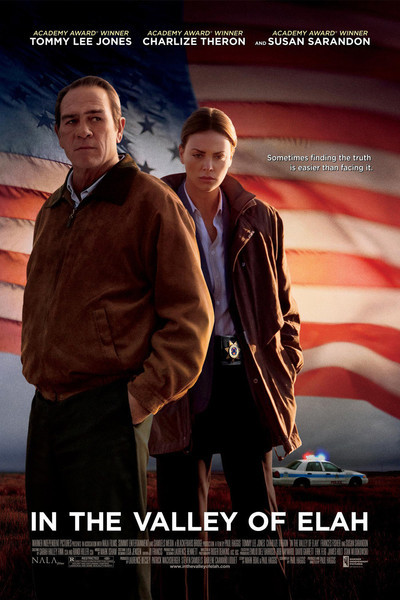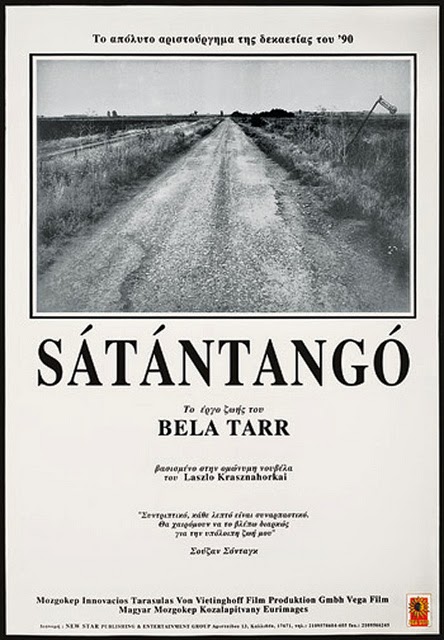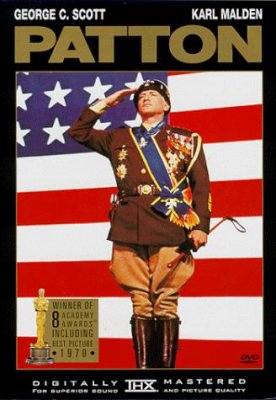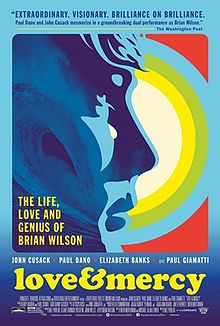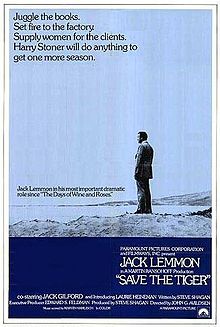
Getting home from Iraq
only half the battle in ‘Elah’
Paul Haggis likes to force uncomfortable subjects upon his viewers.
The writer/director of “In the Valley of Elah” has had an Oscar binge this decade. He wrote “Million Dollar Baby” and “Crash,” both Oscar winners, and collaborated with Clint Eastwood on his “Flags of Our Fathers” and “Letters From Iwo Jima” package.
The ideas in a Haggis movie shouldn't be discussed in public. Society tends to see to it that the most disconcerting or devastating human tragedies are generally kept out of sight. That is probably a good thing. If people thought endlessly about certain realities, they would be depressed, and that is not good. Balance, as legendary UCLA basketball coach John Wooden would say, is the second-most important word (after “love”), and for that reason, an occasional foray into Haggis’ world is not a bad idea, for perspective.
“Elah” is not the first movie to depict the horror of Post-Traumatic Stress Disorder. It is, perhaps, one of the few to link it directly to one person and one policy, and what it sees as a nation’s blithe acceptance of such.
Viewers over 40 — and hopefully many under 40 — will likely recall “The Deer Hunter.” That story was about the effect of a war on a small Pennsylvania community, thousands and thousands of miles away from the conflict. There are soldiers who are maimed, and soldiers who are tormented, and sometimes you wonder which is worse. We see their hometown, not a perfect place but once tight-knit and warm, unsettled by devastation thousands of miles away.
The Iraq war in “Elah” does not destroy a town, but it might as well. One family is shattered; certainly others will be too once the extent of this Army unit’s troubles becomes known. This is an aftermath movie, in which we follow a character who is gradually learning about events that have already occurred. There is some predictability here, as well as some overreliance on “CSI” tactics, but the ending emotion is the same: What a terrible price to pay.
“Elah” is one of Tommy Lee Jones’ two highly regarded movies of 2007. “No Country for Old Men” is the other. Both are set in the South, both feature Josh Brolin, and both spend extensive time at a strip motel. The two aren’t really related, but in each, Jones’ character faces a type of evil that can’t really be confronted; success comes only from avoiding it.
In “Elah,” Jones plays Hank Deerfield, a military retiree who now runs a gravel hauling business in a fairly small Tennessee community. Initially it is clear that something is not right in his life. He receives a phone call from the Army saying his son is AWOL, and he says, “My son’s in Iraq,” only to be told his son’s unit returned four days earlier. So there is some kind of estrangement, something that has already driven father and son apart.
The Hank Deerfield story is classic character development. We see a man probably in his 60s, rigidly set in his ways and beliefs. Jones, certainly one of the world’s premier film actors, understands who Hank is and masters the nuance. One of the best scenes is when he is washing clothes at a laundromat, wearing a T-shirt while his dress shirts are in the dryer, and he is surprised by the arrival of a woman, but without missing a beat he immediately strides over to the dryer to fish out a still-damp shirt and put it on before addressing her. Hank may not think highly of female professionals, but he takes chivalry to the extreme.
We can guess how he votes. The film very noticeably begins right before the 2004 presidential election. Haggis’ implication is that the country had a choice and somehow elected the wrong guy — the type of guy Hank would approve of — perhaps because it didn’t want to hear the truth about war from someone (John Kerry) who had been there.
We see what a talented, insightful man Hank is. He was formerly an MP, but he can show a city cop a thing or two about crime-solving. We admire his dedication and his intellect and are convinced he will figure this all out, up until his own demons surface in a startling, ugly manner (with parallels to another prominent Haggis film, “Crash”). And finally we see a more enlightened man who is at last able to evaluate his own beliefs.
Haggis expertly avoids too much backstory. It is not needed. At times, there is dialogue being used as a crutch, such as when Hank and his wife have to discuss the fate of their older son, or when Hank must explain what an upside-down flag means. We merely need to see that Hank is a proud veteran, concerned about his son. Where Haggis invites legitimate criticism is in his use of too many plot devices that are too well associated with other successful films.
He never gets a truly good handle on the character played by the film’s other star, Charlize Theron. If Theron looks frustrated dealing with outrageous workplace chauvinism in her opening scenes, it’s probably because she’s already done this, famously, in “North Country.”
Haggis has the potential here to put together a relationship — not necessarily a romantic one, could be professional — on the level of Billy Bob Thornton and Halle Berry in “Monster’s Ball.” He doesn’t. The characters of Thornton and Jones are similar, but Theron’s Detective Emily Sanders is too much “CSI” and not enough “Police Woman.” Eventually we tend to like her only for the “Law & Order”-esque advancement she brings to the criminal case, even if much of it stems from the tiresome practice of asking strippers and bouncers to ID people in photos. The fact she is forced to come to grips with her own sexist misjudgment seems almost incidental, an unwelcome distraction.
Sanders is from the same character school as, let’s see, how about Woodward & Bernstein in “All the President’s Men,” Daniel Kaffee in “A Few Good Men,” or Erin Brockovich in the film that bears her name, a low-level and lightly regarded employee who is given a particular assignment only because someone important wants or expects it to go nowhere.
Haggis’ reliance on computer gadget reconstruction is too convenient and predictable. We have a device, a digital camera, that figures to help unravel the mystery of Hank’s son. But of course, it can’t be fixed immediately by an elite pro; it must be tackled by a young computer nerd who works out of his van and will need several days to recover the lost images, sending them in stages so that they advance the story along.
We know from (many) previous films never to trust the initial statements made by soldiers during a criminal investigation in a movie. Haggis almost exuberantly jumps aboard this cliche train, and at some point you begin to wonder if the troops aren’t being coached by Col. Nathan Jessup himself, or perhaps his right-hand man, Kendrick. One of them will take his own life, which would be the Markinson reference. (Those who’ve never heard of those characters have missed a decent movie but are none the worse for wear.) Subtlety is screaming “cover-up!,” and it becomes tedious waiting for the truth to come out.
That truth, at least, is as unpredictable as it is devastating. Tough critics will call it unrealistic. It is, though, unexpected, as are a couple other scenes that score well: Hank’s wife, masterfully minimalized by Susan Sarandon, suddenly appearing to see her son, and a stripper who reappears out of the blue, and not like we saw her the first time, making her two-for-two in surprising us.
This role earned Jones an Oscar nomination. He didn’t win, losing to Daniel Day-Lewis of “There Will Be Blood,” a strange movie that also offers indirect criticism of the Iraq war. Jones’ character is more conventional and satisfying but lacking, perhaps, that little edge that might’ve put him over the top.
One wonders what role, if any, Vietnam played in Jones’ life. In fact, there seem to be no reliable, readily available details on his draft status, which suggests he hasn’t discussed it publicly. An enormously talented person in every sense, he graduated from Harvard cum laude in 1969, a celebrated football player, and, as the stories go, landed a part on Broadway within days and never looked back. His well-known college roommate, Al Gore, did go to Vietnam, albeit not as famously as another Democratic presidential nominee, John Kerry. Jones lives in Texas and isn’t one of the more outspoken Hollywood actors. It may be that he found a part he wanted, or the part happened to find him.
“Elah” is aligned with public sentiment that tends to doubt the Iraq mission. A Gallup poll of April 24, 2008, found 63 percent of Americans believe sending troops to Iraq was a mistake. Gallup reported then that “it is the highest ‘mistake’ percentage Gallup has ever measured for an active war involving the United States — surpassing by two points the 61% who said the Vietnam War was a mistake in May 1971.”
Not everyone though is bound to view this film’s concern for soldiers favorably. Some may question if Haggis loves the soldier as much as he hates the mission, though he seems to be trying. His troops display honor but tend to lie and respond to alcohol. In “Elah” it is said, “We shouldn’t send heroes to places like Iraq.” Haggis is taking a risk. He does have numbers on his side.
3 stars
(October 2008)
“In the Valley of Elah” (2007)
Starring Tommy Lee Jones as Hank Deerfield ♦ Charlize Theron as Det. Emily Sanders ♦ Jason Patric as Lt. Kirklander ♦ Susan Sarandon as Joan Deerfield ♦ James Franco as Sgt. Dan Carnelli ♦ Barry Corbin as Arnold Bickman ♦ Josh Brolin as Chief Buchwald ♦ Frances Fisher as Evie ♦ Wes Chatham as Cpl. Steve Penning ♦ Jake McLaughlin as Spc. Gordon Bonner ♦ Mehcad Brooks as Spc. Ennis Long ♦ Jonathan Tucker as Spc. Mike Deerfield ♦ Wayne Duvall as Detective Nugent ♦ Victor Wolf as Pvt. Robert Ortiez ♦ Brent Briscoe as Detective Hodge ♦ Greg Serano as Det. Manny Nunez ♦ Brent Sexton as Lt. Burke ♦ Devin Brochu as David Sanders ♦ Zoe Kazan as Angie ♦ Glenn Taranto as Detective Wayne ♦ Jennifer Siebel as Jodie ♦ Joseph Bertot as School Janitor ♦ Rick Gonzalez as Phone Technician ♦ Loren Haynes as Police Photographer ♦ Babak Tafti as Iraqi Prisoner ♦ Sean Huze as Capt. Jim Osher ♦ Jack Merrill as Medical Examiner ♦ Kathy Lamkin as Chicken Shack Manager ♦ David Doty as Truck Parts Salesman ♦ Pab Schwendimann as Pussy's Bouncer ♦ Josh Meyer as Joseph R. Millard ♦ Arron Shiver as Cop ♦ Jo Harvey Allen as Jo Anne ♦ Chris Browning as Checker Box Bartender ♦ David House as Morgue Officer ♦ Pierre Barrera as TD's Bartender ♦ Mike Hatfield as Jo Anne's Husband ♦ James Haggis as Soccer Ball Player ♦ Randall Adams as New Recruit ♦ Hans Steckly as Corporal Steckly ♦ Steven Blacksmith as Soldier ♦ Diego Deane as Military Police Officer ♦ Laurie Johnson as Neighbor ♦ William E. Marshall as Detective ♦ Matthew Page as Guard ♦ Dan Strakal as Detective ♦ Brandon Weaver as Morgue Tech
Directed by: Paul Haggis
Written by: Paul Haggis
Written by: Mark Boal (story)
Executive producer: Stan Wlodkowski
Executive producer: David Garrett
Executive producer: Erik Feig
Executive producer: James Holt
Executive producer: Emilio Diez Barroso
Executive producer: Bob Hayward
Producer: Patrick Wachsberger
Producer: Steven Samuels
Producer: Darlene Camaño Loquet
Producer: Paul Haggis
Producer: Laurence Becsey
Co-producer: Dana Maksimovich
Co-producer: Deborah Rennard
Associate producer: Gregory Gettas
Associate producer: Andrew Matosich
Line producer, Morocco: Karim Abouobayd
Original music: Mark Isham
Cinematography: Roger Deakins
Editing: Jo Francis
Casting: Sarah Halley Finn ♦ Randi Hiller
Production design: Laurence Bennett
Art direction: Greg Hooper
Set decoration: Linda Sutton-Doll
Costume design: Lisa Jensen
Makeup: Tarra D. Day ♦ Lisa Blair Leonard ♦ Polly Earnshaw ♦ Matthew Mungle ♦ Majdouline Remmal ♦ Stephen Bettles ♦ Richard Redlefsen ♦ Graham Schofield ♦ Aaron Koons ♦ Koji Ohmura ♦ Danlee Winegar ♦ Karen McDonald ♦ Jennifer Bell ♦ Joann Chaney ♦ Zoe Tahir ♦ Zineb Bendoula ♦ Enid Arias ♦ Geordie Sheffer ♦ Jolynn Nieto ♦ Robin Day ♦ J.D. Bowers ♦ Carlton Coleman ♦ Matt Jorgensen ♦ Eddie Vargas
Stunts: Bobby Burns ♦ Cedric Proust ♦ Keith Adams ♦ Matthew Lee Christmas ♦ Edward A. Duran ♦ Donna Evans Merlot ♦ Lakshman Nathaniel Garin ♦ Clifford Happy ♦ Gene Hartline ♦ Gina Mari Jensen ♦ Jimmy Ortega ♦ Ray Siegle ♦ Shawnna Thibodeau ♦ Jose Vasquez ♦ Thomas Walters ♦ Florian Robin
Special thanks: Clint Eastwood ♦ Marshall Herskovitz ♦ Stephen Nathan ♦ Eli Tawil
